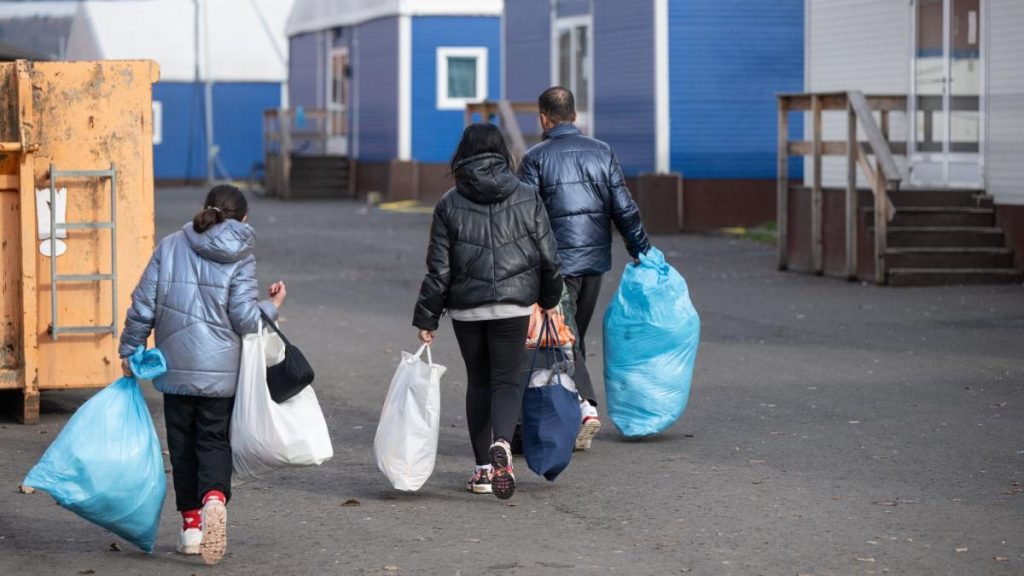The majority of German states are unable to fulfill their obligations for housing asylum seekers, according to a WELT AM SONNTAG investigation. The lack of available accommodation spaces for asylum seekers is posing a major challenge, with new reception centers facing opposition from local residents. Several states, including Baden-Württemberg, Niedersachsen, and Mecklenburg-Vorpommern, are in need of thousands of additional regular accommodation spaces but are struggling to find suitable properties to expand their capacity.
The dispute over the accommodation of asylum seekers escalated last year when many states failed to house them in reception centers as required by law. This resulted in a lack of space in both reception centers and local municipalities. While the current situation is more stable due to fewer arrivals in Germany, several states anticipate new shortages in the summer. It is expected that the numbers will increase again, with approximately 210,000 asylum applications per year according to the federal government’s projections. The lack of adequate accommodation facilities is leading to challenges in managing the asylum process, with asylum seekers sometimes being distributed to local municipalities without a completed asylum procedure.
Although some states, such as Brandenburg, report having sufficient accommodation capacity for asylum seekers, the overall capacity of the states is nearing exhaustion, according to the President of the German County Association. This has led to the distribution of asylum seekers to local municipalities before the completion of their asylum process, causing additional administrative burdens for all involved parties. This situation raises concerns about the quality of accommodation provided to asylum seekers, with reports of children experiencing violence and a lack of privacy in current facilities.
As a result of the challenges in finding suitable accommodation for asylum seekers, some states are struggling to adhere to the agreed-upon process of only transferring migrants to municipalities after completing their asylum procedures. Despite efforts to keep asylum seekers in reception centers until their hearings, the need to maintain available capacity for new arrivals has led to some individuals being transferred to local municipalities before completing the application process. This has caused discrepancies in the distribution process, as some states are unable to fully comply with the agreed-upon procedures.
The ongoing difficulties in expanding accommodation capacity for asylum seekers are further compounded by opposition from local residents and legal obstacles. Finding appropriate properties for new reception centers remains a significant challenge, with several states facing difficulties in securing suitable locations for additional facilities. The success of expanding reception centers will depend on the level of support from local communities and the ability to overcome legal and logistical barriers. Despite efforts to address the shortage of accommodation spaces, the situation remains complex, with uncertainties about future capacity and the quality of services provided to asylum seekers.


